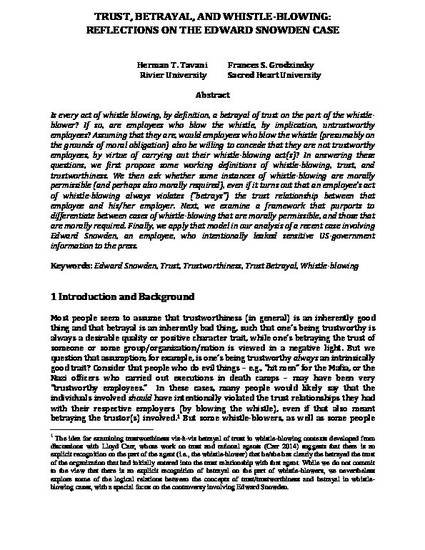
Is every act of whistle blowing, by definition, a betrayal of trust on the part of the whistle-blower? If so, are employees who blow the whistle, by implication, untrustworthy employees? Assuming that they are, would employees who blow the whistle (presumably on the grounds of moral obligation) also be willing to concede that they are not trustworthy employees, by virtue of carrying out their whistle-blowing act(s)? In answering these questions, we first propose some working definitions of whistle-blowing, trust, and trustworthiness. We then ask whether some instances of whistle-blowing are morally permissible (and perhaps also morally required), even if it turns out that an employee’s act of whistle-blowing always violates ("betrays") the trust relationship between that employee and his/her employer. Next, we examine a framework that purports to differentiate between cases of whistle-blowing that are morally permissible, and those that are morally required. Finally, we apply that model in our analysis of a recent case involving Edward Snowden, an employee, who intentionally leaked sensitive US-government information to the press.
Tavani, H.T. & Grodzinsky, F. (2014). Trust, betrayal, and whistle-blowing: Reflections on the Edward Snowden case. ACM SIGCAS Computers and Society 44(3), 8-13. (Special Issue on Whistle-Blowing)
